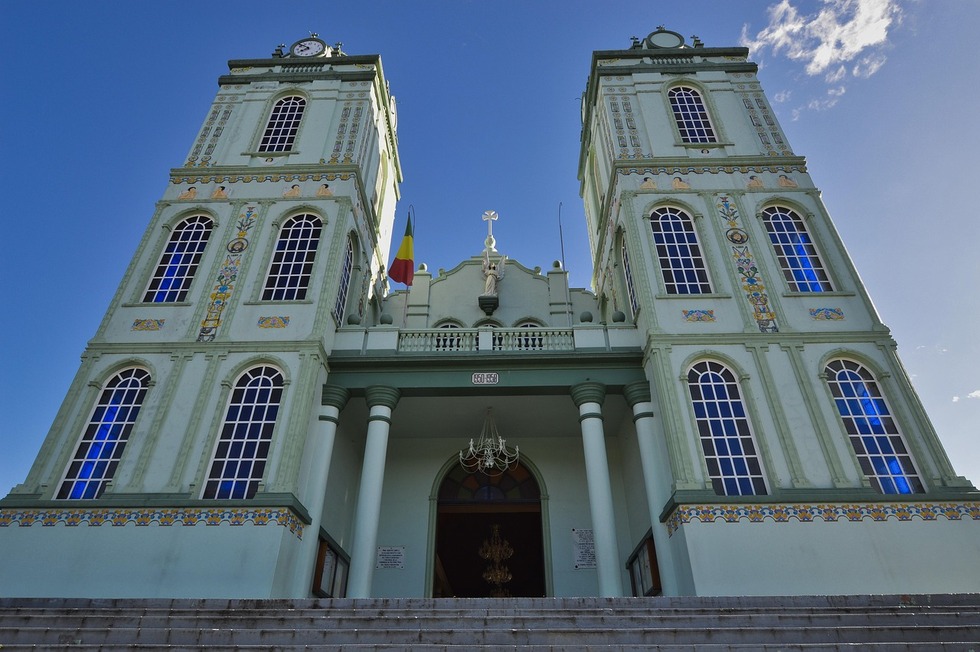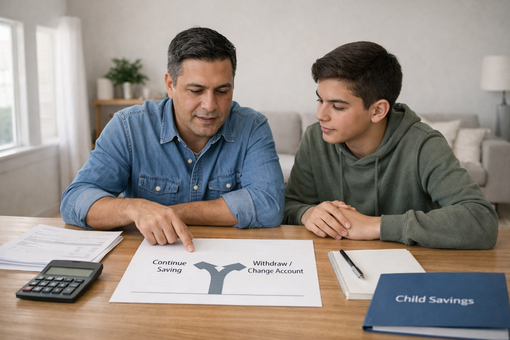Can Americans buy property in Costa Rica? Everything you need to know before you invest

From year-round tropical coasts to cool cloud forests, Costa Rica’s stability and safety make it a magnet for American buyers. Varied microclimates, world-class biodiversity, and a relaxed lifestyle draw expats who want nature without giving up modern comforts.
This guide sets clear expectations for buying property in Costa Rica – the core legal rights (foreigners can own titled property with rights similar to locals), the step-by-step purchase, costs and taxes, best areas, and the risks – so your real estate decisions are confident.
Are there legal ways for expats to own property in Costa Rica?
Costa Rica welcomes foreign buyers under clear constitutional and land registry rules. If you plan to buy property in Costa Rica, here is the legal bottom line in 2025.
- Foreigners have equal ownership rights – Foreigners have the same civil rights as nationals, including the right to own private real estate, so US citizens and Canadians hold title on equal terms with Costa Ricans.
- Maritime Zone concessions – The Maritime Zone along the coast spans 200 meters from the mean high tide line; the first 50 meters are public domain, and the next 150 meters are operated by municipal concessions rather than fee-simple ownership. Public access is protected, and concessions are the only lawful vehicle for private use in that restricted strip.
- Protected areas and border strips – National parks and other protected areas are managed by SINAC as public assets, with special use restrictions; protected areas cover about 25.46% of the country’s continental territory. Border strips two kilometers wide along Nicaragua and Panama are an inalienable State reserve administered by INDER through lease-type concessions, not feesimple sales.
- Title registration and notarial formalities – Ownership is secured by recording deeds and encumbrances in the National Registry’s real estate system, and transfers must be executed by a Notary Public under the Notarial Code – giving property in Costa Rica a formal, registral protection backed by due process rules on expropriation.
Costa Rica property market update and insights
Construction and building cost indices were soft in early 2025, with INEC reporting monthly declines in January (−0.50% for buildings) and further dips in June (−0.39%). Input prices for private construction also eased into Q1 2025, according to the Central Bank’s IPi-CTR series. Demand remains anchored by tourism, with 928,735 international arrivals in Jan–Mar 2025, including 508,381 from the US and 121,134 from Canada. These demand indicators set the stage for what buyers are actually purchasing on the ground.
Houses and land dominate listings, while condominiums operate under the condominium regime established by Law 7933 – standardizing governance across this slice of real estate. Most gated communities function as condominiums with shared areas and recorded bylaws under the Reglamento to Law 7933. For property in Costa Rica near marinas or coastal projects, authorities may require alignment with sector rules before submission to the condominium regime. That legal structure matters even more as the market increasingly shifts toward income-generating uses.
Short-term rentals are formally regulated – Law 9742 and ICT’s non-traditional lodging registry require host registration and, where applicable, municipal permits. With North America leading arrivals, many expats channel demand into compliant Airbnb setups and furnished investment properties. For an American to own property in Costa Rica and tap this market, the pathway is clear – register, respect condo bylaws, and use professional management.
How to buy a home in Costa Rica in 7 quick steps
Here’s a streamlined process to buy property in Costa Rica as Americans – clear, compliant, and efficient.
Step 1: Choose a SUGEF-registered real estate professional
Select an agent or intermediary that appears in the APNFD registry to meet Costa Rica’s AML rules for designated non-financial professions. Search the “Consulta Estado de Inscripción APNFDs” tool and save the agent’s registration screenshot to your file.
Step 2: Visit properties in person – confirm title vs. concession zones
Walk the land and verify whether it’s a fee-simple title or inside the Maritime Zone (first 200 m from the ordinary high-tide line: 50 m public, 150 m restricted under municipal concession). Titled lot in Atenas for a quiet rental; concession parcel in a coastal district with municipal plan and concession terms.
Step 3: Hire an independent attorney who is also a Notary Public
Closings are executed by Notaries under the Notarial Code (Law 7764) – they draft the public deed and record it. Retain a notary-attorney unaffiliated with the seller to prepare the escritura pública and calculate taxes/stamps.
Step 4: Order a full title and survey check at the National Registry
Have your attorney pull the Folio Real file, liens/annotations, and the plano catastrado through the Registry’s digital system. Obtain a digital certification and boundary match before you release any contingencies.
Step 5: Make a formal offer with protective contingencies
Use a purchase–sale agreement contingent on a clean title, municipal tax clearance, inspection, and financing. Add a clause that voids the deal if Registry findings show easements or encroachments not disclosed. (Filed and enforced via your notary at closing.)
Step 6: Move funds through a SUGEF-supervised bank or registered fiduciary – complete KYC/AML
Send deposits and closing funds via a SUGEF-supervised entity and keep your KYC records per Law 7786 and CONASSIF/SUGEF AML rules for APNFD and financial entities. Wire to a supervised bank’s escrow unit; retain passport, source-of-funds letter, and proof of registry checks in your compliance file.
Step 7: Close before a Notary – pay transfer tax and register; budget annual property tax
At signing, the notary submits the deed to the Registry and pays 1.5% Real Estate Transfer Tax on the higher of the fiscal value or price; afterward, expect 0.25% municipal property tax yearly on the registered value. -denominated receipt for 1.5% transfer tax at closing; calendar your 0.25% municipal payments and five-year valuation updates. This is how expats can safely buy property in Costa Rica – step by step, with zero guesswork.
NOTE! If you’re purchasing real estate to rent, align entity choice, ADS depreciation, and foreign tax credits on the US side during due diligence – it locks in better after-tax returns.
Should you buy property through a corporation or as an individual?
In Costa Rica real estate, you can hold title personally or through a company (Sociedad Anónima, S.A., or Sociedad de Responsabilidad Limitada, S.R.L.). Personal title is simpler; a company introduces limited-liability shields and corporate formalities under the Commercial Code. Core property in Costa Rica taxes stay the same on the asset itself, but companies add annual corporate obligations.
How does each structure affect protection, inheritance, and taxes?
Two quick frames: personal title keeps things lean; a company adds structure and separation. Use the model that best fits your risk, heirs, and filing tolerance, especially when you are thinking of buying a house in Costa Rica.
- Asset protection: An individual owner is personally liable for legal claims tied to the property, while a corporation, especially an S.R.L., limits liability to capital contributions under the Commercial Code and shields personal assets.
- Inheritance: Personally held property passes through Costa Rican probate before heirs can register the change at the Registro Nacional. Corporate shares can be passed to heirs, but S.R.L. rules often require consent from existing partners, adding procedural steps.
- Tax considerations: Both ownership types are subject to the municipal property tax (0.25%) and transfer tax (1.5%). Corporations must also pay the legal person tax (Ley 9428) each January – ranging from 69,330 to 231,100 in 2025, and inactive ones must file Form D-195 by April 30.
NOTE! Your structure shapes exit flexibility, dispute risk, and succession – crucial if multiple expats will co-own. Residency is separate: the Inversionista route depends on qualifying investment thresholds, not whether you hold personally or via a company.
Property ownership costs in Costa Rica
Buying property in Costa Rica comes with a clear, law-backed cost stack – so you can budget with confidence. Here’s the crisp rundown expats ask for first.
| Cost item | What the rule says | Typical amount |
|---|---|---|
| Property transfer tax | Law 6999 sets a 1.5% tariff on real-estate transfers; the base can’t be below the municipal-registered value. | 1.5% |
| Attorney & notary fees | Mandatory fee schedule under the Arancel de Honorarios; calculated by value brackets and minimums – no under-billing. | Formula-based (varies) |
| Registry & documentary stamps | Registro Nacional applies official tariffs for stamps and inscription services tied to deed value/pages. | Variable |
| Typical closing costs (all-in) | Sum of the statutory items above (tax + stamps/registry + notary). | ≈ 3–5% of the price |
| Annual property tax | Law 7509 fixes a nationwide rate of 0.25% on the municipal registered value – low by US standards. | 0.25% per year |
| Other ongoing costs | HOA dues, maintenance, insurance, and utilities depend on the property and provider contracts. | Market-based |
These statutory costs are predictable and regulated, making the Costa Rican buying process refreshingly transparent for expats.

Essential pre–purchase checklist for buyers
American buyers enjoy equal rights to hold title, yet the risk lives in the fine print. Before you buy property in Costa Rica, lean on official registries and regulators to verify every claim.
- Verify fee-simple title in the National Registry and watch for Maritime Zone or 2-km border-strip concessions under Law 6043 and Decree 39688.
- Confirm municipal land-use zoning, check SETENA’s environmental category, and obtain an AyA water-availability letter before any building permit.
- Treat as red flags any unclear Folio Real history, construction without approvals under INVU’s Building Regulations, or mismatches with the approved survey plan.
- Engage a Notary Attorney to run title, lien, and cadastral checks and to confirm the statutory transfer tax of 1.5% and the municipal property tax of 0.25%.
Costa Rica’s real estate investment – is it worth it?
Driven by record tourism – 2,661,488 international arrivals in 2024, including 1,587,138 Americans – Costa Rica offers strong rental income potential for both short- and long-term investors. With real estate accounting for 7% of all foreign direct investment in 2023, capital is flowing into high-demand areas like Guanacaste and the Central Valley, fueling consistent appreciation.
Investor protections under Law 7527 support rental stability, while inflation remains controlled – averaging ≈1.2% in Q1 2025, near the BCCR’s 3% target. Compared to many Latin American markets, this mix of yield, legal structure, and macroeconomic resilience makes it highly attractive to buy property in Costa Rica as an American investor.
Top Costa Rica areas for American buyers
Two-minute scan, big decisions made smarter. Below are the hotspots where lifestyle, access, and numbers align for buying property in Costa Rica.
Tamarindo – beach town with strong rental demand
Tourism funnels in via Liberia’s Guanacaste Airport, which handled about 1.9 million passengers in 2024 – a strong tailwind for visitor demand and short-term stays.
You get year-round surf, restaurants, and a polished services scene that suits an American owner who wants easy, fly-in weekends. Municipal beaches and national parks nearby round out the draw.
On property rates, that premium is what supports resilient gross yields when the real estate is well-managed.
Santa Ana & Escazú – upscale suburbs with good infrastructure
Business-friendly, master-planned, and 20–30 minutes from SJO under light traffic via Route 27. You’ll find international medical care at Hospital CIMA (Escazú), top malls (Multiplaza Escazú, Avenida Escazú), and quick weekend access to Pacific beaches. This is the Central Valley sweet spot for commuters and executive rentals.
- Connectivity – Route 27 is the 76.8-km San José–Caldera highway that cuts travel times to the coast.
- Healthcare – Hospital CIMA anchors private care, popular with expats.
- Retail & dining – Multiplaza and Avenida Escazú cluster international brands and restaurants.
Nosara, Jacó, Dominical – surf towns and wellness hubs
Nosara sits in Nicoya canton, known for wellness culture, yoga, and consistent waves – a natural fit for boutique rentals and longer wellness stays. Jacó is Costa Rica’s surf gateway with universal-access beachfront and recurring World Surf League events, supporting steady visitor flows. Dominical belongs to Osa canton, renowned for its wild coastline and nature – think slower pace, stronger eco-branding. For planning, confirm local zoning and concession rules before beachfront plays.
Central Valley – affordable, cooler climate, local experience
Closer to major employers and services, with milder temperatures than the coasts and the country’s main air hub, SJO, which logged a record 5.7 million passengers in 2023. This is the most "live-like-a-local" pick – strong schools, healthcare, culture, and easy weekend escapes.
- Heredia: University and tech corridor.
- Cartago: Historic center and cooler nights.
Match your strategy to the submarket, and if you’re American, sanity-check numbers against both Costa Rican taxes and US filings before you deploy capital into real estate.
Residency & taxes for US property buyers
Buying property in Costa Rica can be smart, but immigration and tax rules sit alongside the deed. If you’re an American citizen, align your status and filings early – it protects returns and avoids surprises.
Does buying property grant residency?
Buying property does not automatically grant residency – you must qualify under set categories defined by Costa Rica’s immigration law and regulations. The below are residency options for property owners/investors:
- Investor (Inversionista) – temporary residency with a minimum US$150,000 investment in real estate or other qualifying assets, typically granted for two years and renewable.
- Rentista – show stable monthly income of at least US$2,500 for two years (bank-issued proof required).
- Pensionado – receive a lifetime pension of at least US$1,000 per month.
What US tax filings will apply?
US tax obligations continue even when assets are abroad – plan for information reporting and rental taxation from day one. You can get an automatic filing extension to June 16, 2025, with our free tax extension service through October 15 or December 15 – but taxes owed remain due April 15.
- FATCA (Form 8938) – file if you exceed the foreign-asset thresholds for taxpayers living abroad (US$200k/US$300k single; US$400k/US$600k joint); direct foreign real estate held in your name is not reportable, but interests held through entities are.
- FBAR (FinCEN Form 114) – required if the aggregate value of your foreign financial accounts exceeds US$10,000 at any time in the year.
- Rental income reporting – report on Schedule E; depreciate foreign residential rentals using ADS 30-year and the mid-month convention.
If you’re buying property in Costa Rica to rent, line up a residency strategy with tax modeling before closing.
Ready to own in Costa Rica – without tax headaches?
Buying property in Costa Rica can be a dream come true – but only if you handle the legal and tax details correctly. If you’re an American citizen, expert guidance helps you navigate municipal assessments, luxury home thresholds, and IRS reporting.
Our specialists at Taxes for Expats are always ready to help you meet every tax compliance requirement so you can own and enjoy your Costa Rican home with confidence.




